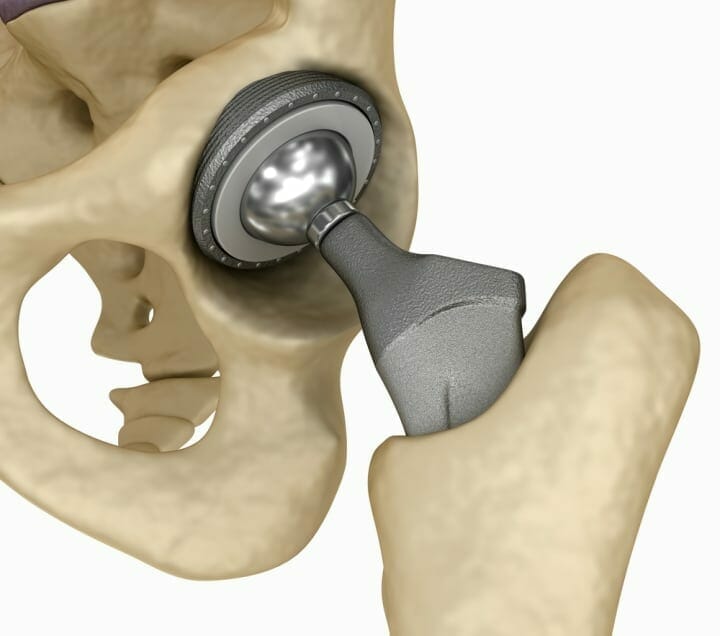
Hey there, fellow hip replacement warriors! We know that life can be a bit unpredictable, and sometimes accidents happen. If you’ve recently taken a tumble and landed on your hip replacement, you may be wondering if you’ve done any damage. Well, fear not! In this blog post, we’ll address this common concern and provide you with the information you need to put your mind at ease.
Understanding Hip Replacements:
First things first, let’s quickly recap what a hip replacement is. A hip replacement, also known as hip arthroplasty, is a surgical procedure in which a damaged or worn-out hip joint is replaced with an artificial joint. This procedure is typically recommended for individuals with severe hip pain, arthritis, or hip fractures that haven’t responded to other treatments.
The artificial joint consists of a combination of metal, ceramic, or plastic components, designed to mimic the natural movement and function of a healthy hip joint. The primary goal of a hip replacement is to alleviate pain, improve mobility, and enhance your overall quality of life.
The Resilience of Hip Replacements:
Now, let’s dive into the main question at hand: Can falling on your hip replacement cause damage? The good news is that hip replacements are quite resilient and can withstand significant forces. They are designed to endure everyday activities, including walking, climbing stairs, and even some moderate exercises. So, a simple fall is unlikely to cause any severe damage.
However, it’s essential to consider a few factors that could affect the outcome:
- Impact Severity: The severity of the fall plays a crucial role. A gentle stumble or minor fall is unlikely to cause harm, but a more forceful impact could potentially lead to complications.
- Bone Health: The quality of your bone plays a role in determining the impact resistance. If you have weak or osteoporotic bones, there is a slightly higher risk of fractures around the hip implant.
- Implant Stability: The stability of your hip replacement also influences its resilience. A well-fixed implant has a higher chance of withstanding falls without any significant damage.
What to Do if You Fall:
Even if the odds are in your favor, it’s essential to take certain steps if you do fall on your hip replacement. Here’s what you should do:
- Assess the Situation: Take a moment to evaluate the severity of the fall and any immediate pain or discomfort you may be experiencing. If the pain is severe or you’re unable to bear weight on the affected leg, seek medical attention promptly.
- Ice and Rest: Applying an ice pack to the area can help reduce swelling and relieve pain. Remember to rest and avoid any strenuous activities until you consult with your doctor.
- Consult Your Surgeon: Reach out to your orthopedic surgeon or healthcare provider as soon as possible. They are best equipped to evaluate your situation and recommend appropriate steps based on your specific circumstances.
- Diagnostic Tests: Your doctor may order diagnostic tests, such as an X-ray or MRI, to assess the integrity of your hip replacement and identify any potential complications or fractures.
When to Be Concerned:
While most falls on a hip replacement do not cause significant damage, it’s crucial to remain vigilant and be aware of signs that may indicate a problem. Contact your doctor if you experience any of the following:
- Intense, unrelenting pain that worsens over time.
- Inability to bear weight on the affected leg.
- Visible swelling, bruising, or deformity around the hip area.
- Noticeable changes in the range of motion or functionality of the hip joint.

Conclusion:
Accidents happen, but in most cases, falling on your hip replacement won’t cause significant
damage. Hip replacements are designed to be resilient and withstand everyday activities, including minor falls. However, it’s important to assess the severity of the fall, consider your bone health, and evaluate the stability of the implant.
If you do happen to fall on your hip replacement, it’s crucial to take immediate action. Assess the situation and the level of pain or discomfort you’re experiencing. If the pain is severe or you’re unable to bear weight on the affected leg, seek medical attention right away.
In the meantime, applying an ice pack to the area can help reduce swelling and relieve pain. Rest and avoid any strenuous activities until you’ve consulted with your doctor. Remember, they are the experts and can provide you with personalized advice based on your unique situation.
When you do reach out to your orthopedic surgeon or healthcare provider, they may order diagnostic tests such as X-rays or an MRI to assess the integrity of your hip replacement. These tests will help identify any potential complications or fractures that may have occurred as a result of the fall.
While most falls on a hip replacement do not cause significant damage, it’s crucial to be aware of any signs that may indicate a problem. Intense, unrelenting pain that worsens over time, an inability to bear weight on the affected leg, visible swelling, bruising, or deformity around the hip area, as well as noticeable changes in the range of motion or functionality of the hip joint, should all be reported to your doctor.
Remember, you’re not alone in this journey. Many individuals have successfully undergone hip replacements and resumed their daily activities without any complications. Falls are a part of life, but with the right precautions and prompt medical attention, you can ensure the longevity and success of your hip replacement.
In summary, while falling on your hip replacement may cause concern, the likelihood of significant damage is relatively low. These implants are designed to withstand everyday activities, including minor falls. However, it’s important to assess the severity of the fall, consider your bone health, and consult with your doctor if you experience any concerning symptoms. By taking proactive measures and seeking medical advice, you can continue to enjoy the benefits of your hip replacement and maintain an active and fulfilling lifestyle. Stay strong and keep moving forward!
